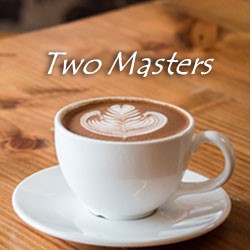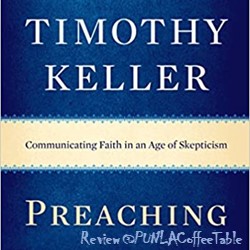Episode 23V08 – the Universe Next Door (Book Review)
(written by Dr. Kip Wehrman 06/29/2023)
Hello my friends. Thanks for joining me today for an @ the PUNLA coffee table. I would like to share with you an article I read by James W. Sire “the Universe Next Door”. I to share this with you as a potential resource that at least some of you might be interested in.
The Universe Next Door by James W. Sire. Sire states in his book that the book is intended to be a catalog of sorts of prominent worldviews. What is a worldview? A worldview is essentially a commitment or fundamental orientation of the heard that can be expressed as a story or set of presuppositions (assumptions) that we hold about reality, and that provides the foundation. Worldviews can be best expressed by what or how individuals answer seven basic questions;
- What is the prime reality- really real?
- What is the nature of external reality, that is, the world around us?
- What is a human being?
- What happens to a person at death?
- Why is it possible to know anything at all?
- How do we know what is right and wrong?
- What is the meaning of human history?
- What personal, life-orienting core commitments are consistent with this worldview?
Chapter 2 addresses the Christian Theism worldview. Basic Christian Theism considers the following basic issues: the nature and character of God or ultimate reality, the nature of the universe, the nature of humanity, the question of what happens to a person at death, the basis of human knowing, the basis of ethics and the meaning of history. Question #1: Prime reality is infinite, personal God revealed in the Holy Scriptures. This God is triune, transcendent and immanent, omniscient, sovereign, and good. Question #2: External reality is the cosmos created by God to operate with a uniformity of cause and effect in an open system. Question #3: Human beings are created in the image of God and thus possess personality, self-transcendence, intelligences, morality, gregariousness, and creativity. Question #5: Human beings can know both the world and God himself because God has made us with the capacity to do so. God takes an active role in communicating with us. Question #4: Each person ultimately chooses life with God or eternal separation from the goodness of God. Question #6: Ethics are transcendent and depend on the character of God. Question #7: History is linear and meaningful leading to God’s purposes for humanity. Question #8: Christian theist live to seek first the kingdom of God, to the glory of God.
Chapter 3 addresses deism.” Base Deism is a system that essentially believes God created everything then lift it alone to function on its own. Question #1: A transcendent God as the first cause and created everything but leaves it alone to run on its own. God is not immanent, not triune, not fully personal, not sovereign over human affairs, and not providential. Question #2: God’s created cosmos has uniformity of cause and effect in a closed system. No miracles are possible. Question #3: Human beings are just part of the clock work of the universe. Question #4: Human beings may or may not have life beyond this existence. Question #5: Human reason and scientific method can be used to understand everything about the universe. The world is understood to be in its normal state, not fallen or abnormal. Question #6: Ethics are intuitive, the universe reveals what is right. Question #7: History is linear and was determined by creation. The meaning of history remains to be understood and can be, by application of human reason. Question #8: The goal in life varies from the cold deist fully autonomous reason to the ward deist mild commitment to a somewhat person God.
Chapter 4 addresses naturalism. Basic naturalism is that the material is all there is. Question #1: Prime reality is matter. Matter exists externally and is all there is. God does not exist. Question #2: The cosmos exists as a uniformity of cause and effect in a closed system. Question #3: Humans are complex machines. Personality is an interrelation of chemical and physical properties that we do not fully understand yet. Question #4: Death is the end of the person. Question #5: Human reason including methods of science are all that is needed to understand the universe. The cosmos is in its normal state. Question #6: Ethics are related to human beings. Question #7: History is a linear linked chain of cause and effect events without overarching purpose. Question #8: Naturalism implies no particular core commitment but that commitments are adopted unwittingly by individuals..
Chapter 5 addresses Zero Point nihilism. Basic nihilism is more of a feeling than a philosophy, more a solitary stance before the universe than a worldview. First the basis reason for nihilism is found in the foundations of naturalism, matter is all there is and humans are mere machines. Second a person only has an illusion of truth. Perception and knowledge arise from the functioning of matter. Sire concludes that no one can actually live a life consistent with nihilism. If a nihilist thinks, and they think their thinking has substance, then they are not living by their philosophy.
Chapter 6 addresses existentialism. The basic atheistic existentialism accepts most of the propositions of naturalism but goes further to consider that humans are not significant in an otherwise insignificant world. Question #1: see naturalism. Question #2: The cosmos is composed of matter only, but humans’ reality appears in two forms; subjective and objective. Question #3: Humans are complex machines. Each person is totally free as regards nature and destiny. Question #4: Highly organized objective world stands are considered absurd. Question #5: An authentic person must revolt against the absurdity and create their own value. Question #6: Knowledge is subjectivity; the whole truth is often paradoxical. Question #7: History is a record of events and is uncertain and unimportant. Question #8: The core commitment of an atheist existentialist is to him or herself. only
Chapter 7 addresses eastern pantheistic monism. Basic eastern pantheistic monism is difficult to categorize but the general notion is an impersonal reality. Question #1: the soul of every human is the soul of the cosmos (ultimate reality). Question #2: some things are more than others. Question #3: Most roads lead to the same place ultimately. Question #4: Death is the end of individual existence, but it changes nothing essential about the individual. Question #5: Awareness is to pass beyond knowledge. The principle of noncontradiction does not apply to ultimate reality. Question #6: Awareness is to pass beyond good or evil. Question #7: Awareness is to pass beyond time. Time is unreal. History is cyclical. Question #8: Core commitment is to eliminate desire to achieve salvation.
Chapter 8 addresses the new age spirituality. The basic tenants of the new consciousness are . Question #1: Whatever the nature of being is, the self is the prime reality. Question #2&3: The cosmos is unified in the self but is manifested in more dimensions beyond what is visible. Question #4: Physical death is not the end of self; under the experience of cosmic consciousness the fear of death is removed. Question #5: The core experience is the cosmic consciousness where ordinary concepts of space, time and morality disappear. Question #7: History is a record of events that actually occurred but are of little interest. Question #8: New agers are committed to realizing their own individual unity with the cosmos. Creating and recreating it in their own image.
Chapter 9 addresses postmodernism. Postmodernism moves away from addressing what is there or how we know, but instead focuses on how language functions to construct meaning. Question #1: There is no substantial self. Humans made themselves who they are by the languages they construct about themselves. Question #3: Stories give communities their cohesive character. Question #4: The truth about reality is itself is forever hidden from us. All we can do is tell stories. Question #6: All narratives mask a play for power. Any one narrative used as a metanarrative is oppressive. Question #7: ethics is a linguistic construct. Social good is whatever society wants it to be. Question #8: core commitments are constantly in flux. They commit to an endless stream of shifting “whatevers.”.
Chapter 10 addresses Islamic theism. Question #1: The fundamental reality is God (Allah) described as monotheistic, infinite, personal, transcendent, immanent, omniscient, sovereign and good.. Question #2: God (Allah) created the universe and all creatures. However the world is a closed system. Question #3: Humans are the pinnacle of creation. Humans have abilities that other creatures don’t, this includes creatures like angels, jinn, etc. Question #4: Death is a time of transition between this life and our eternal state, either paradise or hell. Question #5: Allah has endowed humans with the capability for knowledge by means of reason and senses. Question #6: Right and wrong are based on the teachings of the Quran.. Question #7: Human history has significance in demonstrating the absolute sovereignty of God. Question #8: A devout Muslim is grateful to Allah for providing opportunity to serve him and stive to follow the divine instructions.
In the final chapter Sire examines choosing a worldview and revisits how Christian theism should be viewed with respect to these various worldviews.
I personally really like this book. If you are looking for a book which will help you understand some of these various worldview, this book would be a great resource.
Thank you for joining me @ the PUNLA Coffee Table today, I hope you’ll join us again. If you liked the message, please share the link with a friend. Send me comments, my email should be on the screen.
Until next time @ the PUNLA Coffee Table. God bless.


